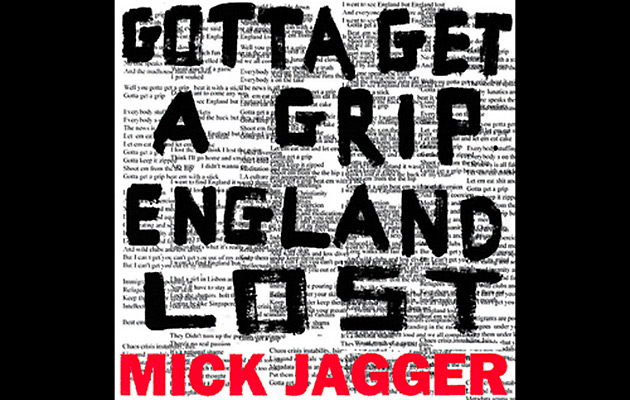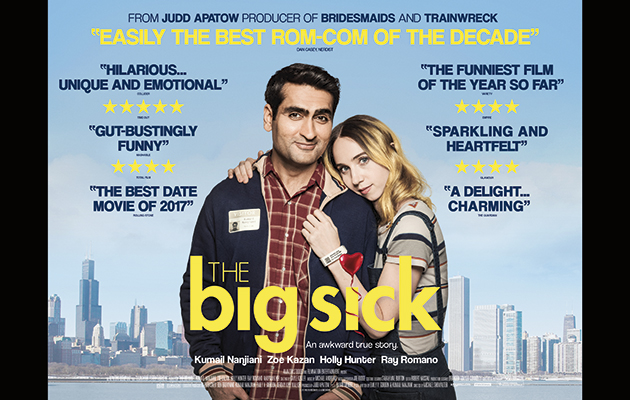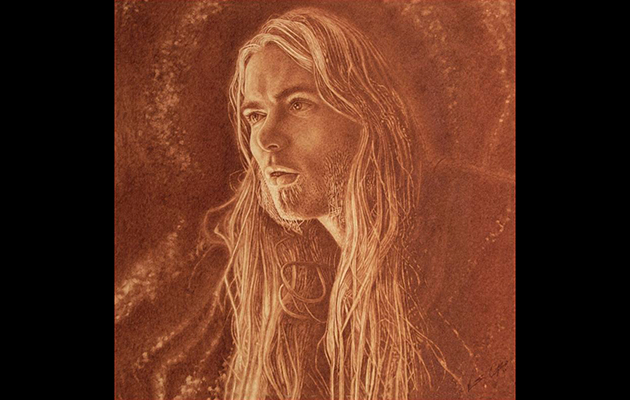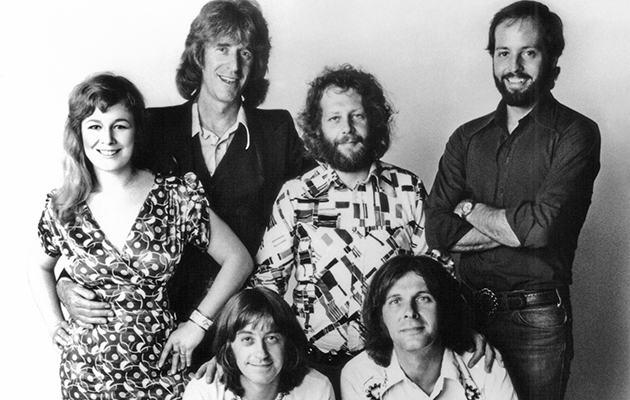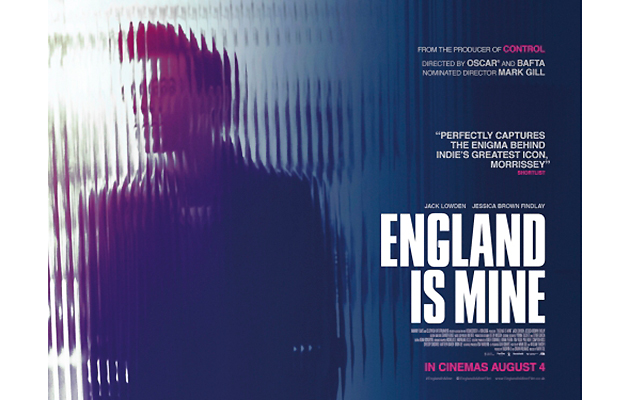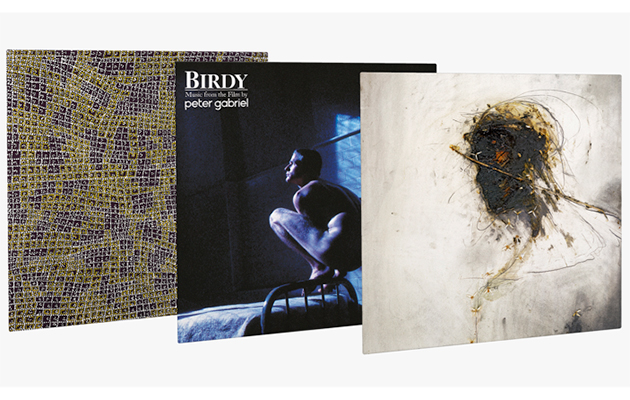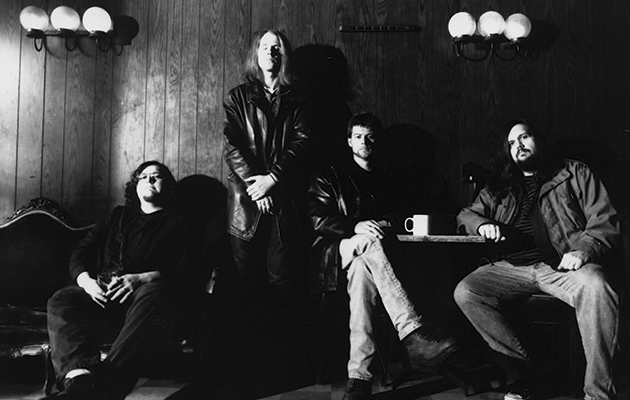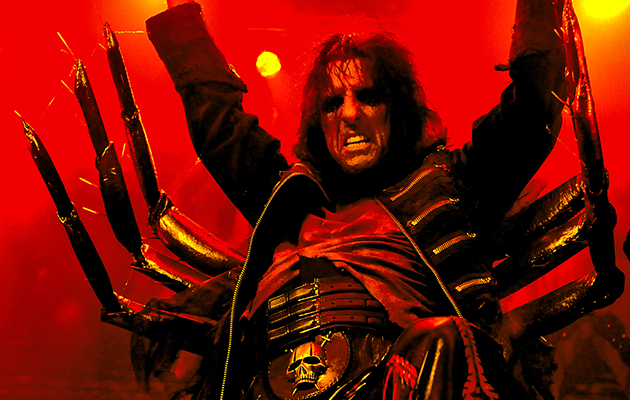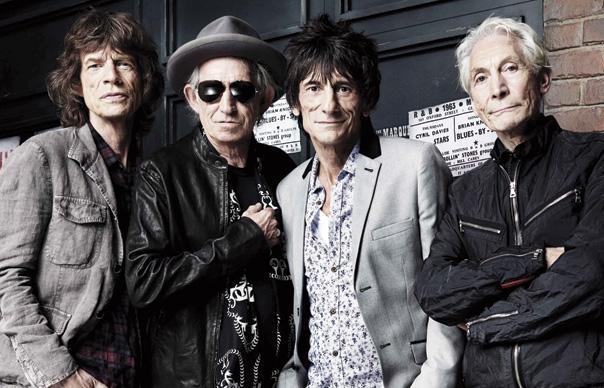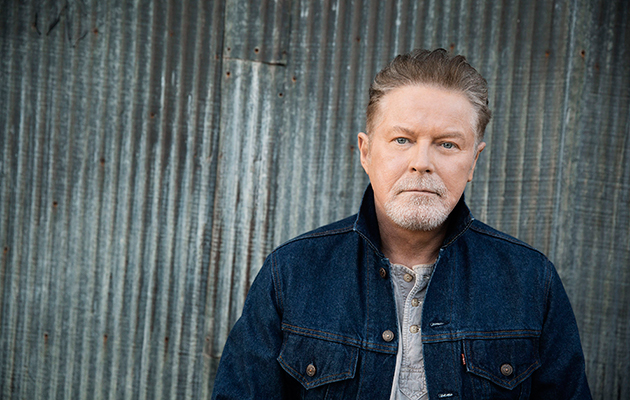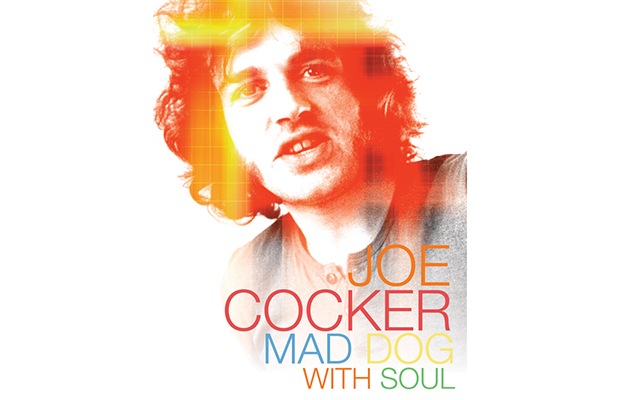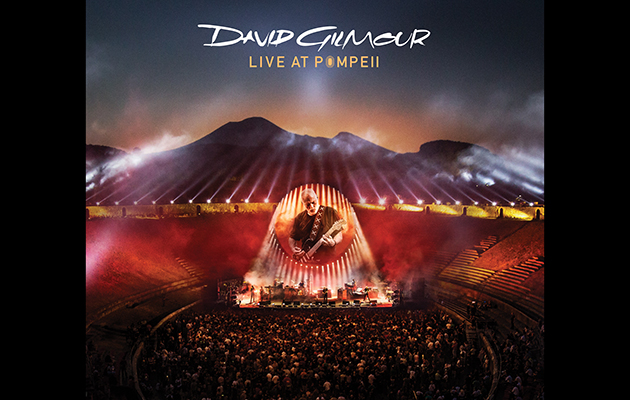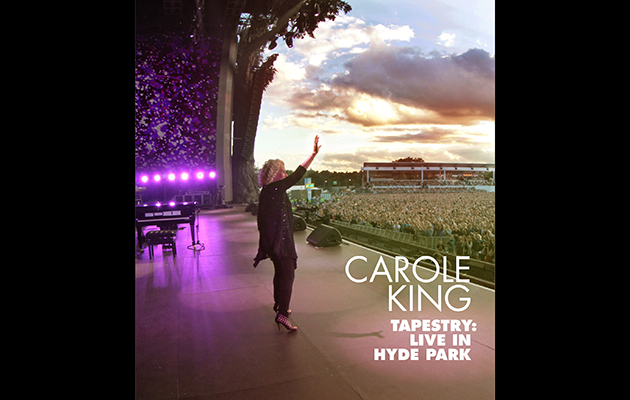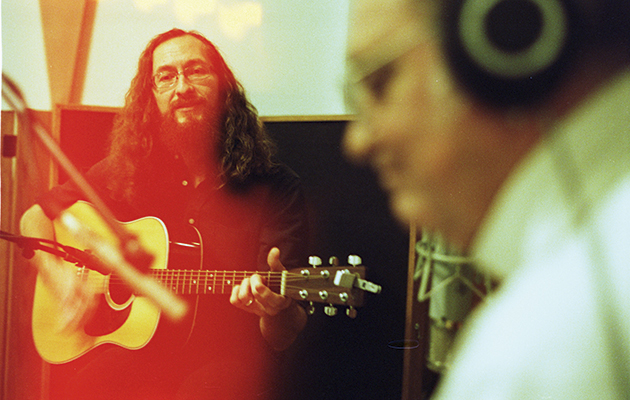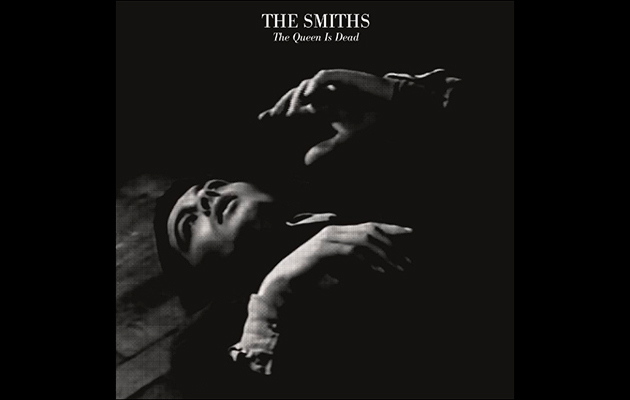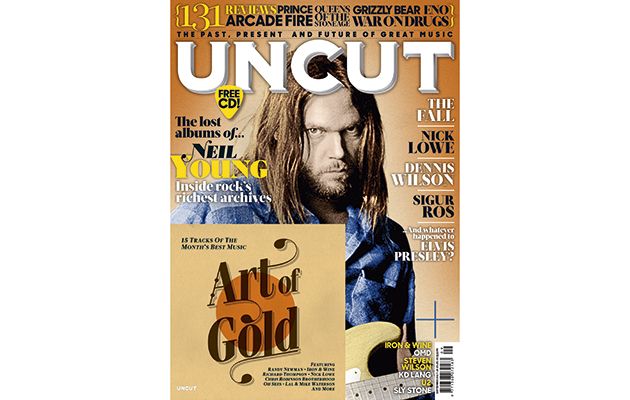In a career that has been brilliant and sporadic, heroic and thwarted, Peter Perrett has often sung about death. Even in his most exuberant, up moments, as on the almost hit single “Another Girl, Another Planet”, he registered a note of existential ambivalence, singing: “I always flirt with death/I look ill, but I don’t care about it”. His love songs were narcotic, so there was always a suspicion that the lover he was addressing, this intoxicating amorata, was heroin or crack, because for a time he was an enthusiastic user of both drugs, and even subsidised the early career of his band by working as a dealer.
Add to that the erratic nature of Perrett’s career since the split of The Only Ones in 1982 – an under-appreciated solo album (Woke Up Sticky, as The One) in 1996, and a couple of brief Only Ones revivals – and you’d be forgiven for surmising that the old vampire’s talent for ironic gravestone poetry had at last found its purpose. And then, ahead of this album, came the single, “How The West Was Won”, a song which managed to be both traditional and startlingly contemporary. Traditional, because the lyric seems to be freighted in on a “Sweet Jane” riff, though Perrett is at pains to point out that Lou’s song has an extra chord (“It would be a minor sixth, wouldn’t it?”), and is delivered with more of a country lilt, while “How The West…” is rocky. And contemporary because, well, though the recording predates the full hellish flowering of the Donald Trump stupidity cult, it sounds very much like the sound of a man shouting at cable news and finding himself infuriated with the inanities of celebrity culture. It is also refreshingly funny: it’s worth remembering that, for all his reputation as bloodless doomsayer, Perrett does enjoy a joke. So, yes, there’s a blunt critique of US imperialism (“Won, at the point of a gun/Like they’ve always done”), before the narrator confesses: “Just like everybody else, I’m in love with Kim Kardashian/She’s taken over from J-Lo as my number one/Even though I know she’s just a bum/In another timeline, I would’ve stared at her all day long/Without ever wanting to see her from the front.” It’s like Noam Chomsky doing bum puns to a Lou Reed tune. And who knew that could be so appealing?
The title track, of course, isn’t typical. But it does show that, at 65, Perrett is back, in decent shape, and fully engaged with the world. To anyone who has YouTubed The Only Ones’ 2008 comeback performance from Later… With Jools Holland, with Perrett looking insect thin and sounding vocally skeletal, it’s a relief to hear that he has re-learned how to sing; a not inconsiderable thing given the lung problems he has endured.
Musically, too, things are different. This isn’t an Only Ones revival. The peculiar chemistry of that band’s music was a product of time and place. They were non-punks who prospered almost in spite of their proficiency. The group’s drummer Mike Kellie had played with Spooky Tooth. Bass player Alan Mair had enjoyed local fame with the (almost) Scottish Beatles, The Beatstalkers. Guitarist John Perry was a member of Ratbites From Hell, a party band from the fringes of Glastonbury. And Perrett, though the same age as Joe Strummer, seemed to come from a generation that linked directly with what became viewed, later, as the roots of punk. He was one of the few who had noticed and enjoyed The Velvet Underground the first time around, devouring their debut album when he was 15. But when he was 13, something more important happened. He heard Bob Dylan’s “Like A Rolling Stone”. It changed his life. He began to understand something about the way lyrics could be primed to detonate. He sensed the power of sound.
Viewed from this distance, it’s clear that The Only Ones had very little to do with punk, and everything to do with that literate strand of late ’60s rock’n’roll. That strain of rock classicism means their records have endured, even though Perrett now confesses to preferring the eight-track recordings they did for John Peel over the band’s three LPs, as the pure power of the songs is more evident in a stripped-down format. That seems to be the template here. Yes, there are spectral harmonies, and – the Perrett thing – vocals that kaleidoscope between languor and submission, but the tunes are largely kept in check, solos rationed. True, “Living In My Head” explodes into a spectral jam, but the central instrument is Perrett’s voice.
The LP, though not exactly a concept piece, is deliberately organised, tracking an emotional journey from the self-mocking rage of the title track to something that sounds suspiciously like romantic contentment. There’s a tearjerking finale on “Take Me Home” in which Perrett finally submits: “I wish I could die in a hail of bullets sometimes,” he croaks, “but all I can do is sing and play, on the frontline.” The coherence of the sound is due to the fact that Perrett’s band (Strangefruit in another guise) is pretty much a family affair, with Perrett’s sons Peter Jr and Jamie on bass and guitar, and his “sort of surrogate daughter” Jenny Maxwell on electric viola and backing vocals. Jake Woodward plays drums.
The material is largely new, and reflects the singer’s growing optimism as he adapts to a drug-free, healthy lifestyle. Most of the writing took place after Perrett played a handful of shows in the summer of 2015 and became reacquainted with his guitar. Writing “An Epic Story” convinced him he still had songs in him, but the broader mood – which pervades all the material – is of a man growing used to the unusual sensation that he has a life worth living. The lovely “Troika” is a tribute to a lifelong romance, and it manages to achieve emotional grace while flirting with the structure of a Phil Spector teen ballad. Clearly, given Perrett’s past, the positivity wears dark clothes, so there is a heavy dose of gallows humour. On the half-spoken “Something In My Brain” he compares himself to a lab rat, given the choice between food and crack. “Well, the rat he starved to death,” he croons, leaving a couple of pre-punchline beats, “but I didn’t die/At least not yet/I’m still just about capable.”
Old habits being what they are, Perrett can’t resist the temptation to write in a way that conflates chemical craving with romantic dependency. There’s more than a hint of the Velvets’ “Heroin” on the album’s highpoint, “C Voyeurger”, Perrett’s gentle, vulnerable tribute to Zena, his wife and partner of 48 years. The words were written in 2004, when Zena was diagnosed with a serious illness. The tune swings slowly, thawing from numbness into little spirals of energy. It ebbs and flows, as Perrett coaxes himself out of lethargy and into the dawning realisation that he has something worth keeping, something to lose. It’s about craving; and here, in this moment, the usual ambiguities are reversed. Love, after all, is the drug.
Q&A
PETER PERRETT
How are you?
Great. I feel full of life. And having some new music to talk about is even better than just talking about the old days, which is like ancient history, two or three lifetimes ago. It feels like I’m starting off on a new adventure.
The album sounds like that – it’s not a valedictory whimper.
No.
It was just the whole process of getting
my head straight, appreciating life and what it has to offer. The main thing it
has to offer is the ability to play music, which not many people of my age are privileged enough to experience. So I’m making the most of that, and being focused on it solely, rather than on the distractions of youth, has made it a really enjoyable experience.
Was it easy to get healthy?
Yeah, no, it was just a decision. I have super-human willpower which I didn’t engage, because I didn’t actually feel I needed to or wanted to for a long period of time. But once I make a decision, I find it very easy.
What did you have to give up?
Everything. I’ve given up smoking, as well. The last time any smoke went into my lungs – cigarettes or joints or anything – was April 8, 2011. So it’s over six years. I’ve given myself a chance to breathe again. I don’t like talking about health problems. It’s an old person’s thing. That’s why it’s great having the band be a different generation, because I can forget about it. It’s only when I play football or look in the mirror that I realise I’m not 25 anymore. The thing is to not look back and have regrets about how long that decision took to make. That’s negative, and I’m enjoying life so much that I can’t see the point in having any regrets at all. I wouldn’t be where I am now if I hadn’t lived the way I lived. I would probably have had a career and be more jaded and be on a never-ending tour doing Frank Sinatra covers.
Your voice sounds strong. You had lung problems before, didn’t you?
My lungs barely function at all. I’ve had to learn how to sing again with them. Consequently, songs like “How The West Was Won” where there’s lots of syllables in quick succession, or a stream-of-consciousness song like “Something in My Brain”, I have to do in a half-spoken conversational delivery. If I’m going to sing more, like on “An Epic Story”, it’s got more space, so I have to pace myself. But I’ve got my voice back into shape over the last few years by just trying to live as healthily as possible and not rely on steroid inhalers, because they were actually damaging my voice box. The healthy thing started ’cos I didn’t have any choice. It’s like a survival instinct kicks in at the last minute. You think, ‘This is as far as any human being can possibly take it.’ I just woke up one day and thought, ‘Right, I’m gonna live healthily.’ I’m at the point where, when I was in Berlin recently, I had some non-alcoholic beer, and my tolerance is so low, I get drunk on that. That shows you how clean I am.
There’s ambiguity in your songs. At first they seem to be about mortality and death, and then they can seem romantic, upbeat, optimistic.
It’s meant to be ambiguous. I’ve always used humour, whether it’s gallows humour or ironic humour. So when I do touch on mortality and things that you think about in later life, it’s still done in a humorous way. I don’t think I’m ready to record a really depressing album yet. I have got songs for it. Like I’ve got a song called “Epilogue” which I’ll put out eventually, but not for a first comeback. I feel like I’m a newcomer. I feel like what I’ve done before, that was a different person. I feel like this is the first album that I’m making. That’s why I’m doing it with passion. And I feel that I’ve been able to control things better. Before I used to just do things and think they were perfect because it was me that did them. Now the whole process of recording and mixing I’ve paid detailed attention to. Every note is the way I want it to be. I think as an album it’s my best, because it’s a complete journey from beginning to end. Every track is another step on the emotional journey.
Do you think you’ve always been a bit out of time in your career?
It was the right time. It was great in 1977 to be in a new band. It was a time of opportunity for all new bands, and it was easy to stand out. Our name, The Only Ones, was reflective of how I’d approached my whole life, not wanting to be like anybody else, just wanting to be totally individual. The originators – the Sex Pistols, people like that – when they happened, they were individual, but pretty quickly it became a fashion, a uniform and formulaic music. So if you looked slightly different it was easy to stand out. I like to stand out, so I feel I was fortunate at that time. I like not fitting in – that’s what gives me great pleasure.
INTERVIEW: ALASTAIR McKAY
The September 2017 issue of Uncut is now on sale in the UK – featuring Neil Young on the cover. Elsewhere in the issue, there are new interviews with Mark E Smith, Nick Lowe, Iron & Wine and Sigur Rós, we remember Dennis Wilson and explore the legacy of Elvis Presley. We review Grizzly Bear, Queens Of The Stone Age, Arcade Fire, Brian Eno and The War On Drugs. Our free CD features 15 tracks of the month’s best music, including Randy Newman, Richard Thompson, Oh Sees, Lal & Mike Waterson, Psychic Temple, FJ McMahon and Chris Forsyth & The Solar Motel Band and more.


